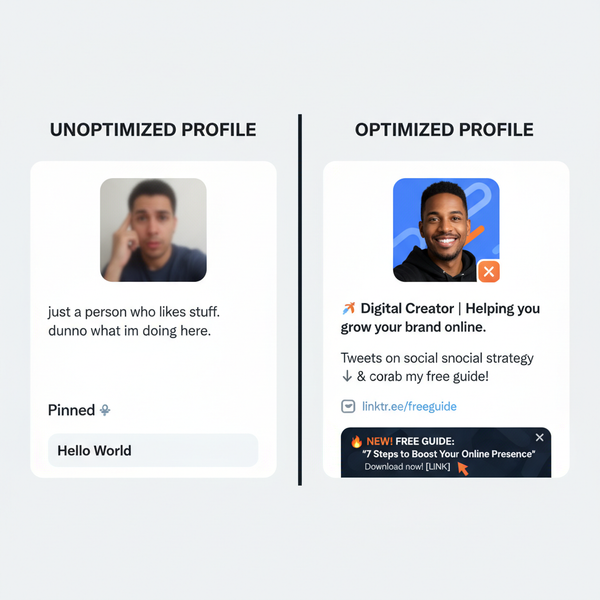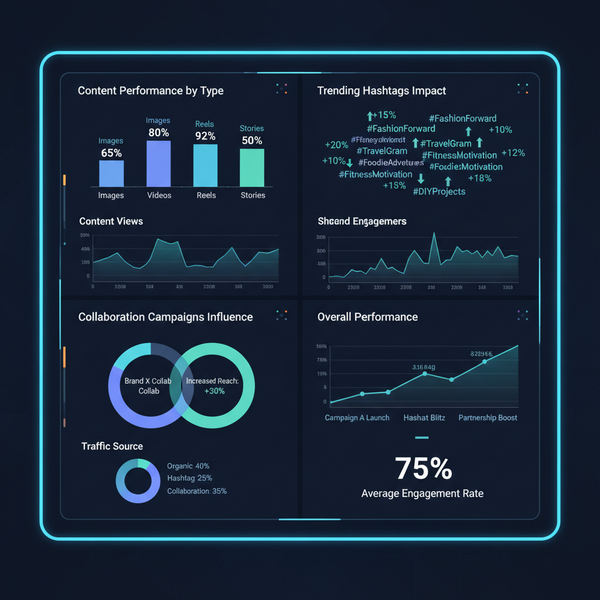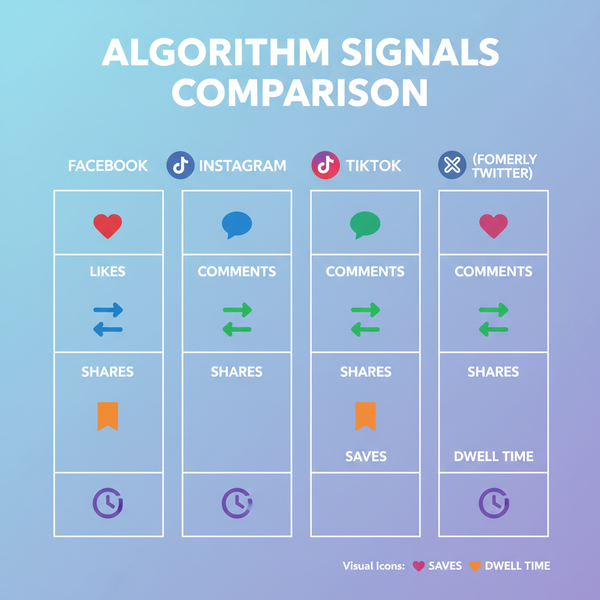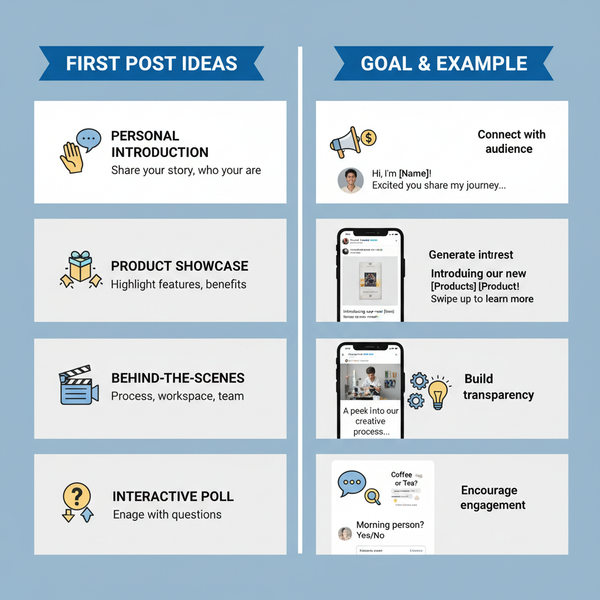Facebook Maximum Image Size and Dimensions 2024
Learn the optimal Facebook image sizes and dimensions for 2024 to ensure sharp visuals, prevent cropping, and boost engagement across devices.
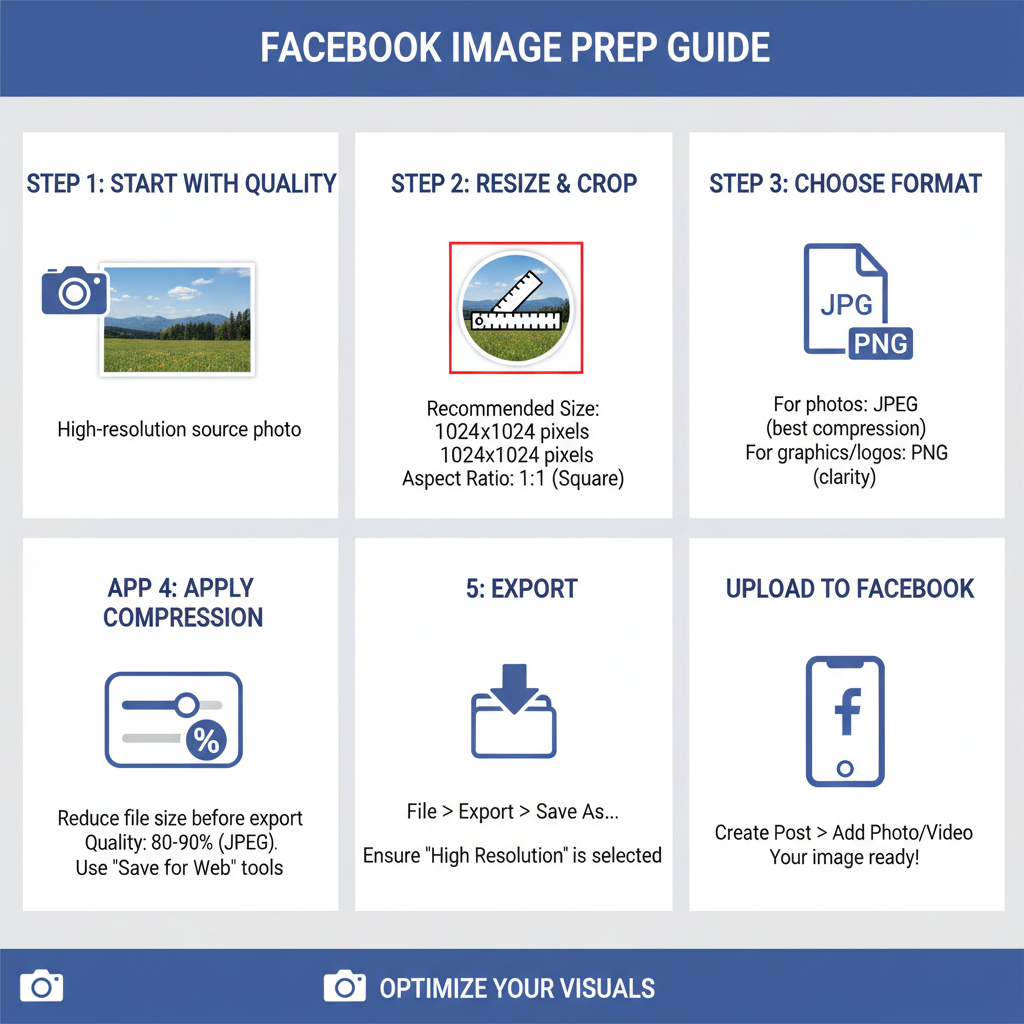
Introduction: Why Image Size Matters on Facebook
On Facebook, visual content is king, and image quality is directly tied to engagement rates. For business pages running ads, creators building a presence, or individuals sharing memorable moments, clarity and proper cropping mean the difference between a scroll-past and a click. Oversized, undersized, or ill-proportioned photos can cause pixelation, awkward alignment, and less reach. Choosing the right Facebook maximum image size helps keep your visuals sharp across desktop, mobile, and tablet.

Correct image sizing helps you:
- Maintain a professional look.
- Prevent unwanted cropping.
- Boost click-through rates on ads.
- Keep branding uniform across devices.
Since Facebook periodically updates formats and layouts, knowing the 2024 standards will give you an advantage.
---
Overview of Facebook’s Main Image Placement Types
Facebook structures its visual elements differently depending on purpose. The main types are:
- Profile Photo – Your personal or brand avatar.
- Cover Photo – The large header image atop your profile or page.
- Shared Image (Timeline Post) – Standard visual posts on your feed.
- Event Cover Photo – Banner image for event promotion.
- Ad Formats – Multiple placements for sponsored posts.
- Carousel Images – Horizontal scrolling panels in ads.
- Story Images – Full-screen vertical shots.
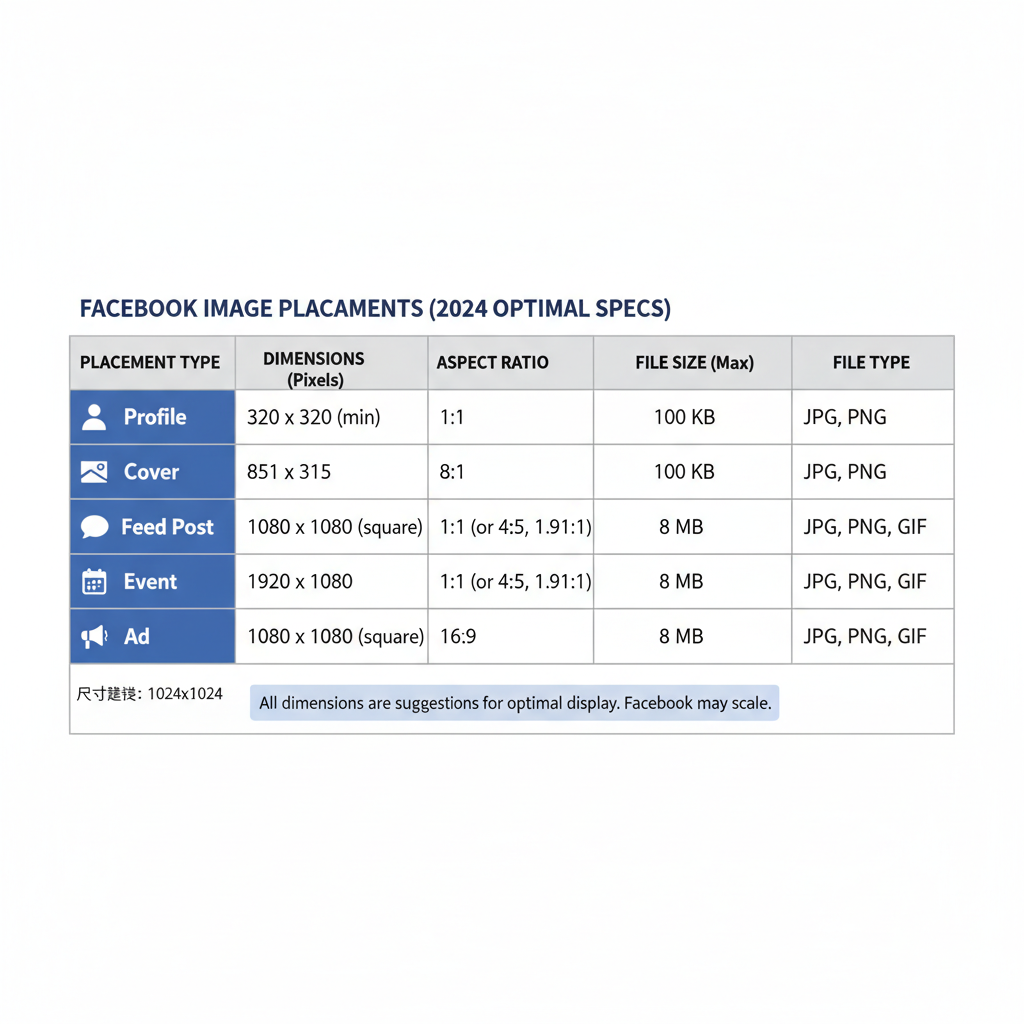
Each placement requires adherence to unique dimension rules and aspect ratios.
---
Current Optimal Dimensions for Each Type (2024)
Using correct dimensions prevents distortion. Below is a detailed table on recommended Facebook maximum image size settings:
| Image Type | Optimal Dimensions (pixels) | Aspect Ratio | Max File Size |
|---|---|---|---|
| Profile Photo | 360 x 360 | 1:1 | Up to 2 MB |
| Cover Photo | 820 x 312 (desktop) | ~2.63:1 | Up to 100 KB recommended |
| Shared Image | 1200 x 630 | ~1.91:1 | Up to 8 MB |
| Event Cover | 1920 x 1080 | 16:9 | Up to 8 MB |
| Ad Image (single) | 1200 x 628 | 1.91:1 | Up to 30 MB |
| Carousel Image | 1080 x 1080 | 1:1 | Up to 30 MB |
| Story Image | 1080 x 1920 | 9:16 | Up to 30 MB |
---
File Size Limits and Recommended Formats
Facebook supports JPEG, PNG, and GIF formats for most placements. The recommended uses are:
- JPEG – Great for photographs with gradients and rich color.
- PNG – Ideal for graphics, text, logos, and transparency backgrounds.
- GIF – For lightweight animations suitable in ads and posts.
Tips to remember:
- Larger files can be aggressively compressed — stay well below maximum limits when possible.
- Use sRGB color profile to ensure color consistency across devices.
---
Understanding Facebook’s Image Compression
Facebook compresses uploads to balance fast loading and visual integrity. Compression steps include:
- Stripping non-essential metadata.
- Slight downscaling if dimensions exceed maximum.
- Applying mid-level JPEG compression for uploads above ~100 KB.
Pro Tip: Resize and compress on your own before uploading to preserve control over image quality.
---
Mobile vs Desktop Display Differences
Images appear differently depending on viewing device. Common variations include:
- Profile images: circular display on mobile but square when saved.
- Cover photos: wider presentation on desktop; cropped on mobile.
- Stories: complete vertical fill on mobile, cropped previews on desktop.
It’s essential to preview your content on both platforms before publishing.
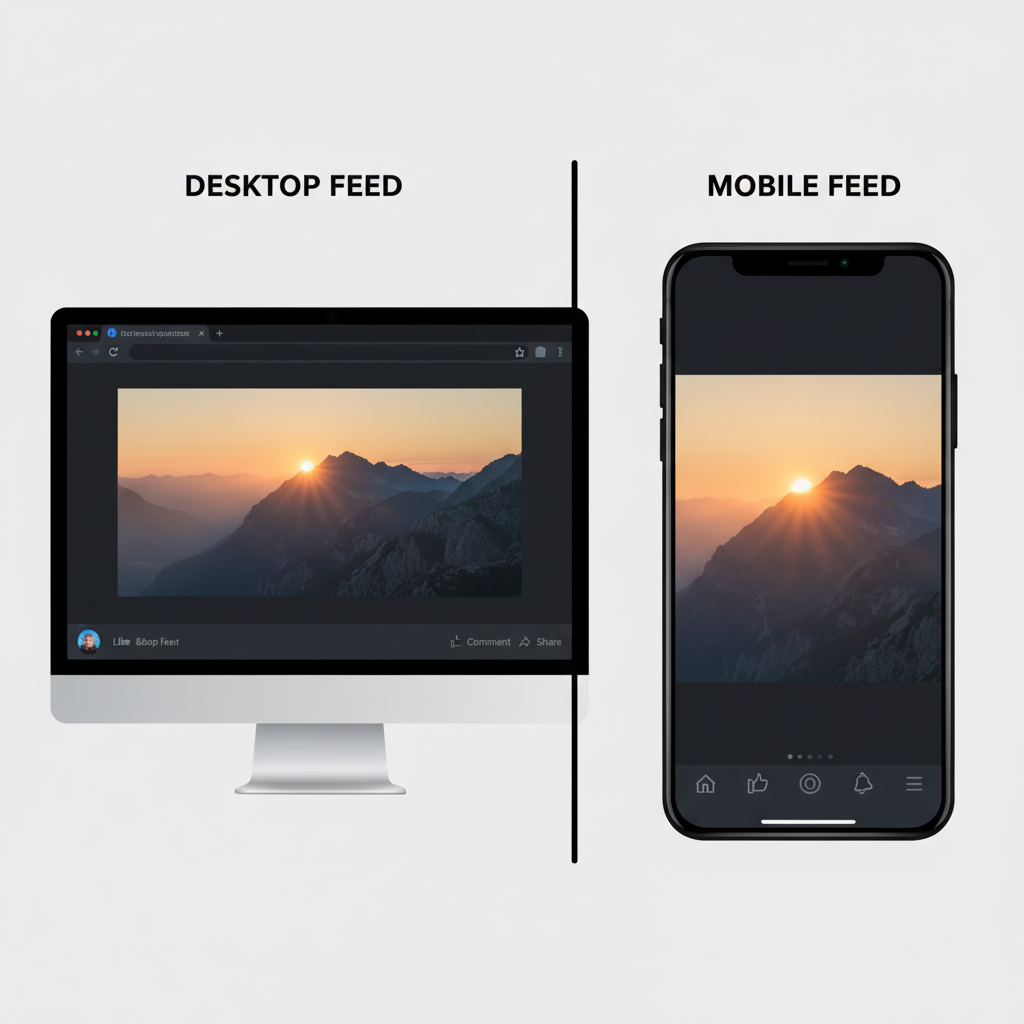
---
Strategies for Sharp, High-Resolution Facebook Images
Follow these steps to meet Facebook maximum image size standards and retain crispness:
- Start with top-quality source files in large resolution.
- Resize precisely to optimal pixel dimensions.
- Export with low-compression settings.
- Use vector graphics for logos, saved as PNG for sharp edges.
- Apply light sharpening after downscaling for clarity.
---
Avoiding Aspect Ratio Mistakes
Aspect ratio matters as much as total pixels. Incorrect ratios lead to:
- Automatic cropping that can cut out key elements.
- Visual stretching or compressed space.
- Blank borders around content.
Stick to the ratios in the optimal dimensions table to avoid Facebook’s default cropping. For ads, position key text within designated safe zones.
---
Image Editing and Optimization Tools
Common tools for preparing Facebook images:
- Canva – Ready-made templates for Facebook placements.
- Adobe Photoshop – Precise resizing with full export control.
- Figma – Collaborative design environment.
- TinyPNG – Compression with minimal quality loss.
- ImageMagick – Command-line bulk editing for efficiency.
Example ImageMagick resize:
magick input.jpg -resize 1200x628 output.jpg---
Common Oversized Upload Mistakes
Uploading images far above the recommended size can cause:
- Slower load times that reduce user engagement.
- Heavy compression from Facebook, making images less crisp.
- Inconsistent appearance across different devices.
Moderation in size ensures steady performance and presentation.
---
Future Trends in Facebook Image Standards
Potential changes may include:
- Higher resolution defaults for ultra-HD screens.
- Support for immersive AR/VR visuals for metaverse integration.
- Increased emphasis on video and hybrid visual formats like Reels.
Designing with flexibility in mind can keep your media future-ready.
---
Conclusion
Using the correct Facebook maximum image size boosts both appeal and performance. By following recommended dimensions, sticking to tested file formats, and previewing for both mobile and desktop, you can present professional, eye-catching visuals that stand out in the 2024 algorithm.
---
Quick Reference Cheat Sheet
| Type | Optimal Size | Aspect Ratio |
|---|---|---|
| Profile Photo | 360 x 360 px | 1:1 |
| Cover Photo | 820 x 312 px | ~2.63:1 |
| Shared Image | 1200 x 630 px | ~1.91:1 |
| Event Cover | 1920 x 1080 px | 16:9 |
| Ad Image (single) | 1200 x 628 px | 1.91:1 |
| Carousel | 1080 x 1080 px | 1:1 |
| Story | 1080 x 1920 px | 9:16 |
Use this quick guide to make sure each upload meets Facebook maximum image size requirements and looks great all year. Start optimizing today for sharper, more engaging visuals that resonate with your audience.

